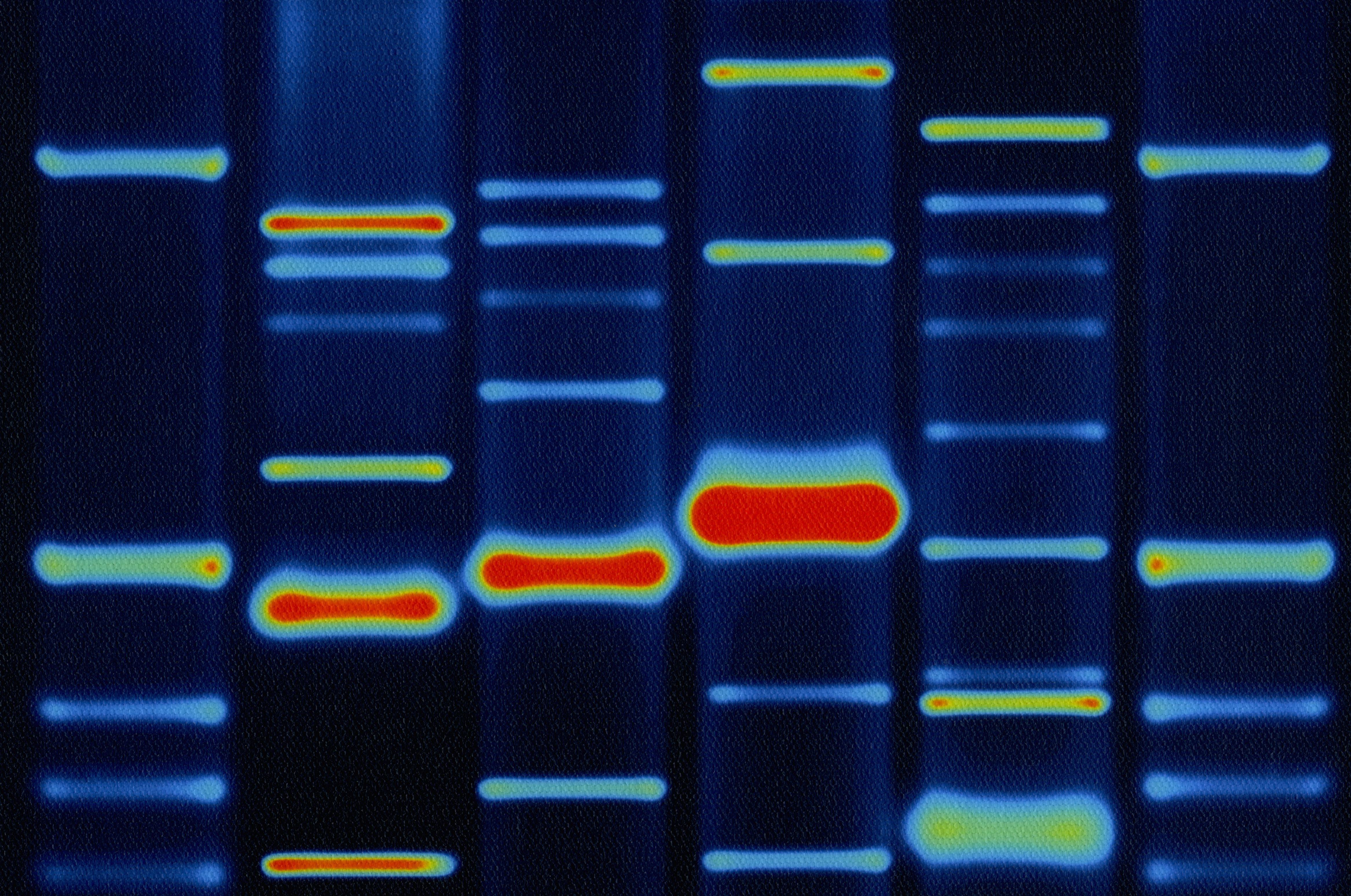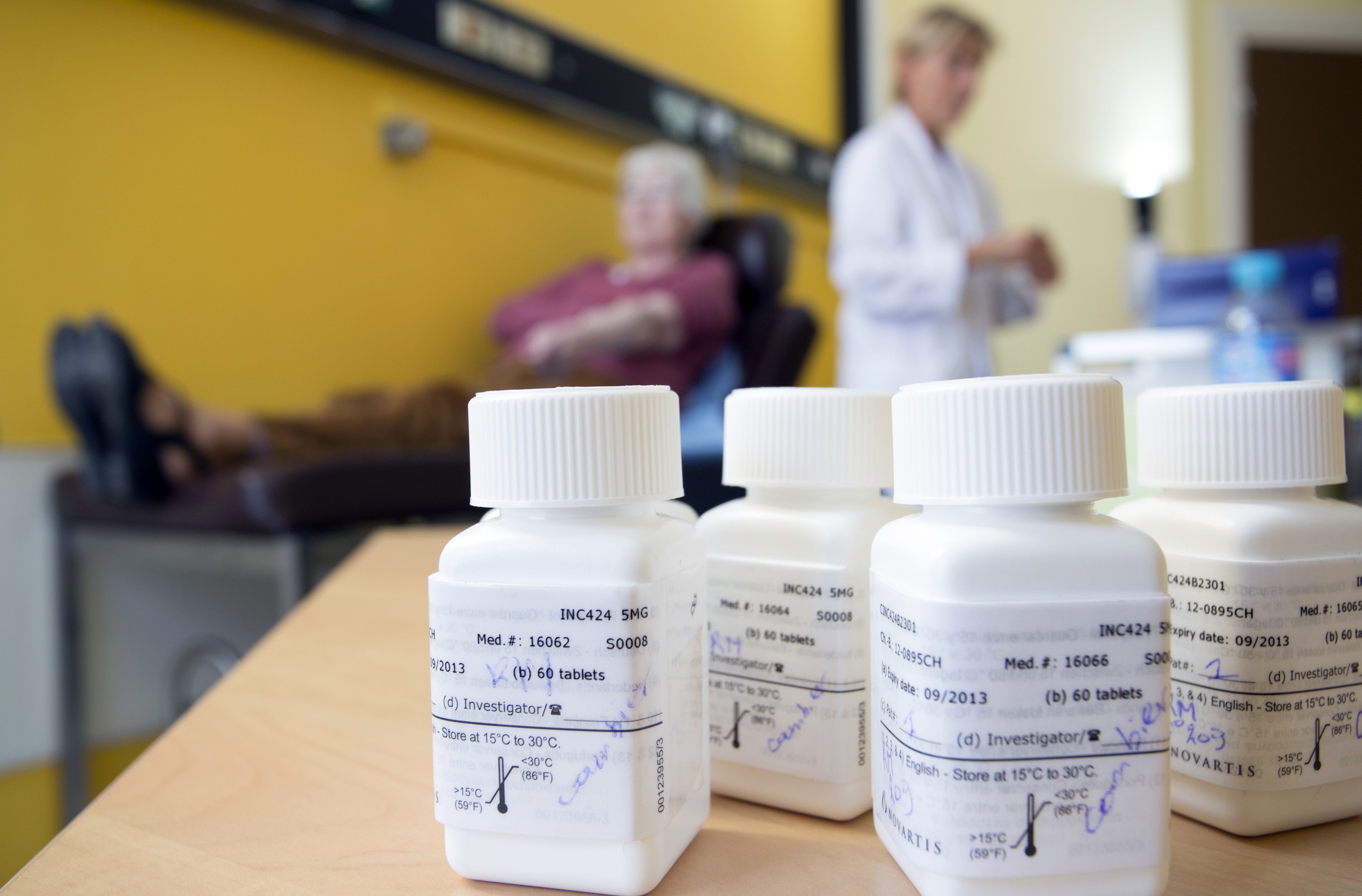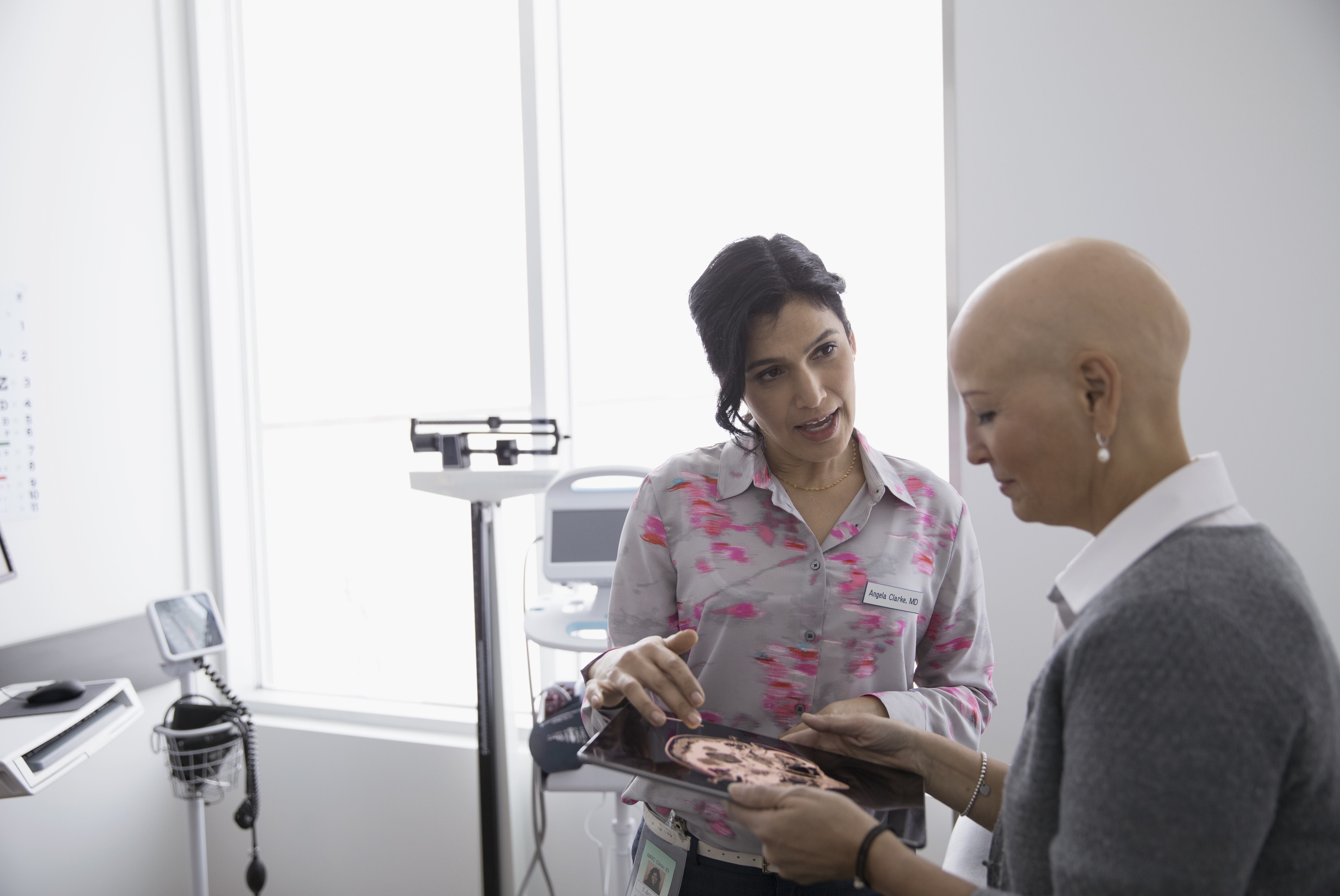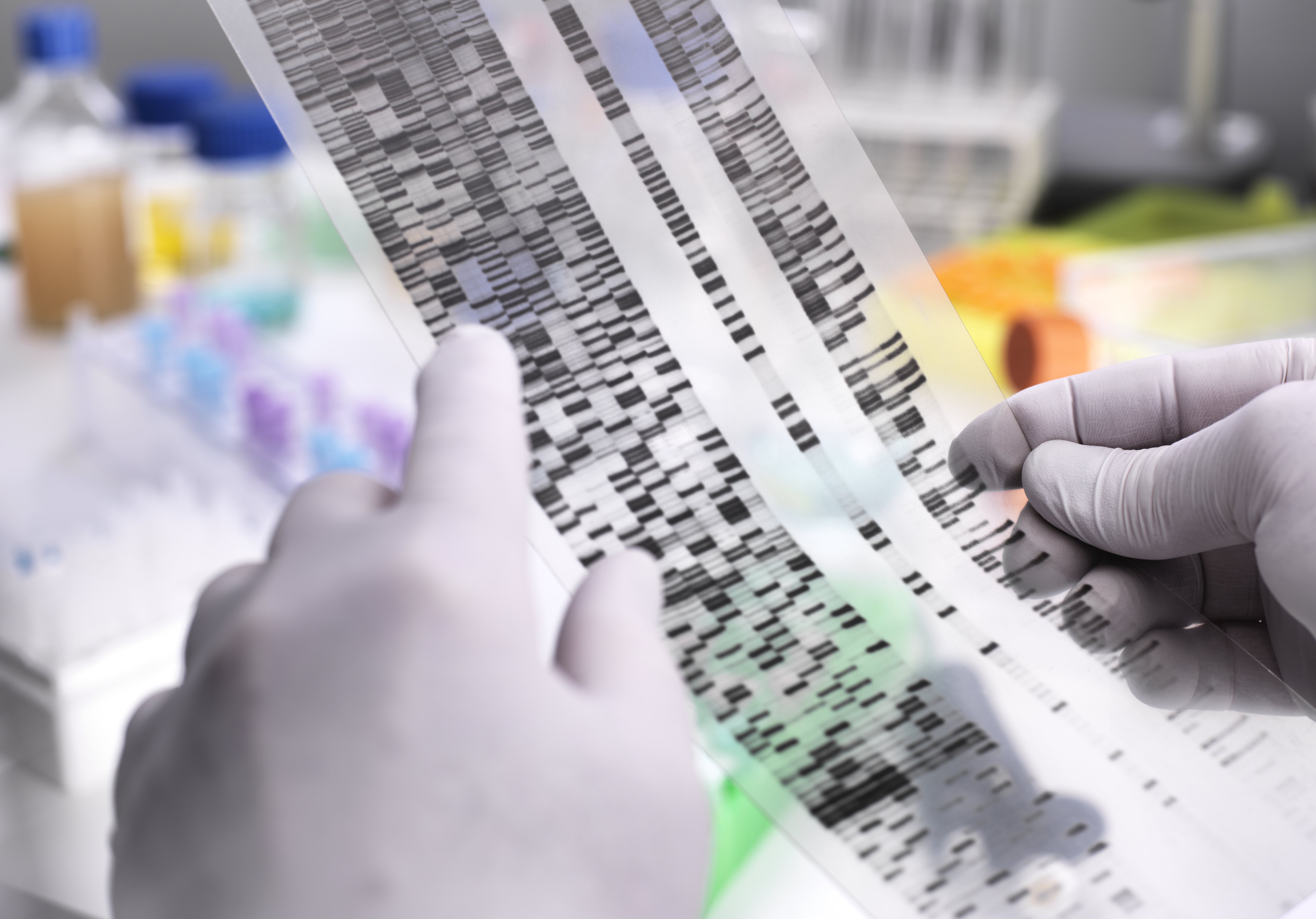
Health & Medicine
Wiping cancer from our hard drives

Whole-genome sequencing is changing the cancer treatment landscape, but we have to understand its use in the real-world to support a more sustainable, affordable health system
Published 30 April 2019
The human genome is made up of over three billion DNA base pairs. Which means, in theory, there are unlimited ways for something to go wrong and allow cancer to develop.
Sequencing the genome using next-generation sequencing technologies can provide an unprecedented opportunity to improve cancer health outcomes for patients. They also promise to enhance cancer service delivery and control the costs of high-quality cancer care.

In oncology, whole-genome sequencing (WGS) is gaining momentum in some parts of the world. WGS provides valuable genetic data to help practitioners and patients choose more targeted treatments, reduce side-effects and treatment costs, and improve screening by better understanding any familial cancer risk.
Several studies, including those by Melbourne Genomics, Genome England and the Hartwig Medical Foundation, have shown the potential value of the routine clinical use of WGS.
They demonstrate that it’s possible to sample biopsies, sequence, store and use computational analytics to interpret and support decision-making around treatment.

Health & Medicine
Wiping cancer from our hard drives
Now, the Cancer Health Services Research unit at the University of Melbourne is looking at how WGS can best be used in Australia’s cancer health services by integrating research findings and evidence around the implications of its use in terms of health economics.
A significant number of cancer drugs can now cost more than $A100,000 per treatment per patient, and there’s a growing pipeline of new targeted drugs, immunotherapies, or combination treatments that make it even more challenging to pay for cancer treatment.
Better diagnostics means supporting a more sustainable, affordable health system, and avoids patients paying for drugs that may not offer the most effective treatment.

One of key drivers behind the value of WGS is its clinical utility – that is, its ability to change clinical management and improve outcomes.
In medical oncology, this usually means the use of targeted and expensive cancer drugs. Precision oncology, based on these diagnostic tests and predictive analytics, should result in better targeted treatment and, ultimately, savings.
Whether we are willing to pay for diagnostic tests can be determined by measuring the health benefit compared to the additional cost of the testing. The evaluation of the cost-effectiveness of one specific test designed to recommend one specific drug is relatively straightforward.

Health & Medicine
Getting a clear picture of chemoprevention
However, this is much more difficult for WGS because the wealth of diagnostic information can suggest multiple treatment options.
For a health economist, this immediately raises the question of whether society should also pay for diagnostic information that may not directly influence treatments or improve health outcomes.
And even more challenging is the problem that this additional diagnostic information can result in the delivery of health services that weren’t required in the first place, or what’s known as over-diagnosis.
Many of the economic evaluations used to inform decisions about the adoption and reimbursement of new cancer diagnostics and drugs are based on evidence generated in well-controlled clinical trials, rather than on actual practice.

But there is increasing evidence that health outcomes reported in clinical trials usually overestimate clinical outcomes achieved in the real-world.
Added to this, modern cancer treatment increasingly involves a complex treatment pathway where clinical decisions are made sequentially, which can sometimes differ to what was tested in a clinical trial.
It’s very likely that with the many new research findings, the opportunities of WGS and the availability of low-cost monitoring of cancer progression using blood tests, the cancer treatment landscape could experience even further changes.

Health & Medicine
Filling in the genetic blanks of breast cancer predisposition
The implication is that, when evaluating the impact of WGS, it’s essential not to just rely on clinical trials, but to use Real-World Data (RWD), like the information provided in clinical and administrative registries.
RWD is an overarching term used for all information about our health services that isn’t collected in randomised clinical trials. Using RWD we can analyse complex treatment pathways covering different health services of thousands of patients.
Additionally, RWD will help us understand the full value of WGS, and the data-analytic methods could even help us evaluate any variation in treatment episodes and outcomes at an individual patient level.
We recently explored new methods to analyse RWD and are now investigating several of these specific approaches in Australia for prostate, lung, melanoma and colorectal cancer – with plans to expand to other cancers.

Australia already has an ecosystem that is globally recognised for one of the best cancer outcomes worldwide and, no doubt, it will be at the fore-front through the significant investments in cancer research, education and care.
The recent announcement of the first Australian CAR-T advanced cancer treatment centre in Melbourne is just one example. But Australia also has to develop a strategy for promoting health-system sustainability, for which our cancer health services research program provides important health analytic capability.

Health & Medicine
A chip off the DNA block
The very strong patient engagement advisory group helps medical professionals to set priorities for research, and RWD will facilitate our efforts to reduce disparities in outcomes by fostering equal access to high-quality services including WGS.
Absolutely key for these achievements is the vision of the Victorian Comprehensive Cancer Centre (VCCC) in making a significant investment in a data-driven Cancer Health Services Research program.
The launch of the VCCC data-hub creates an opportunity for data-linkage combining different hospital-based cancer services, primary care, the cancer registry and the Pharmaceutical Benefits Scheme.
Ideally, these results will contribute to the improvement of value-based cancer services and develop world-leading care pathways that benefit both the patient and the Australian economy.
Banner: Getty Images